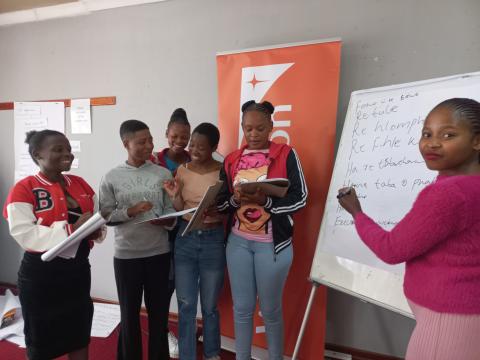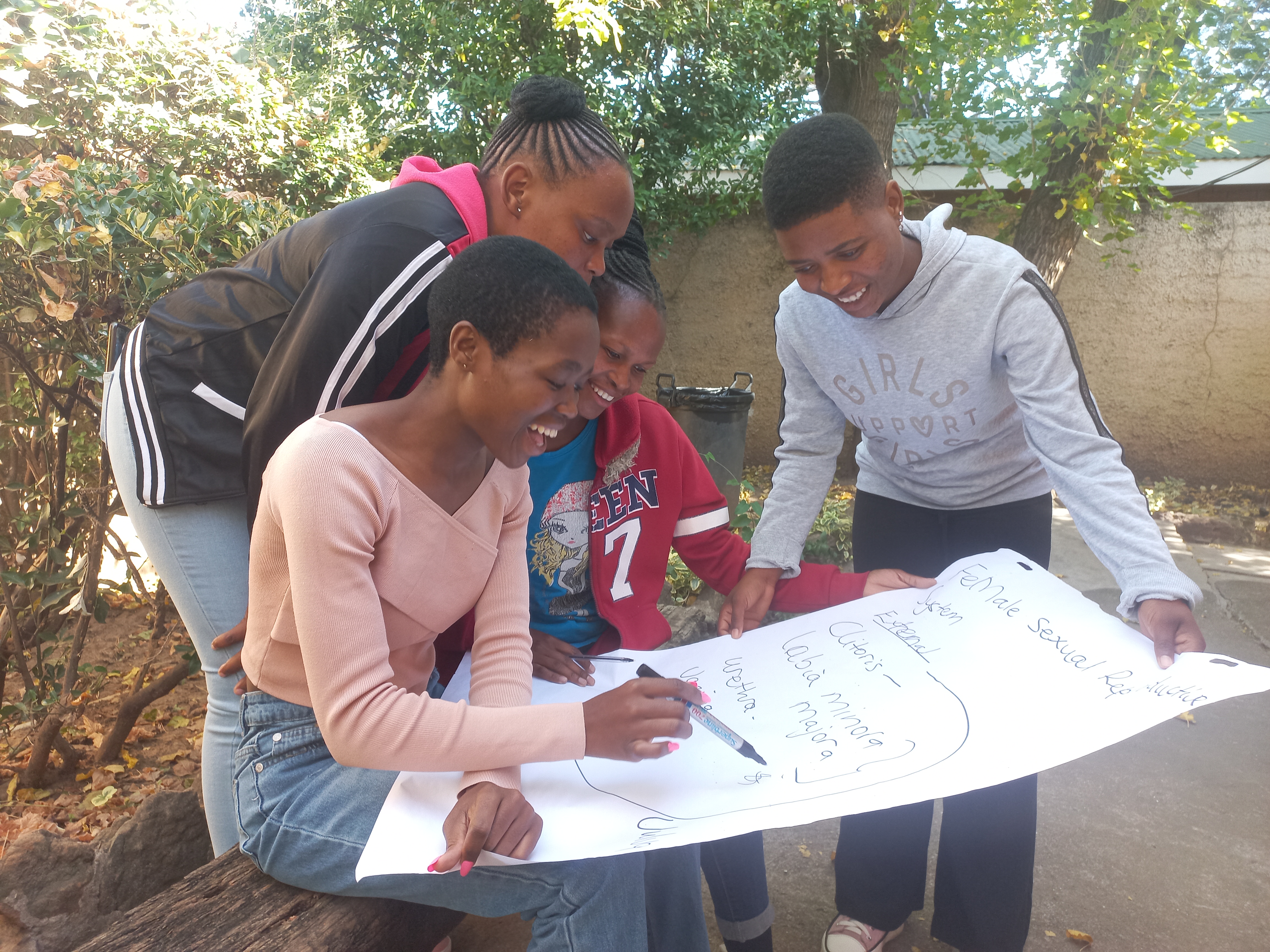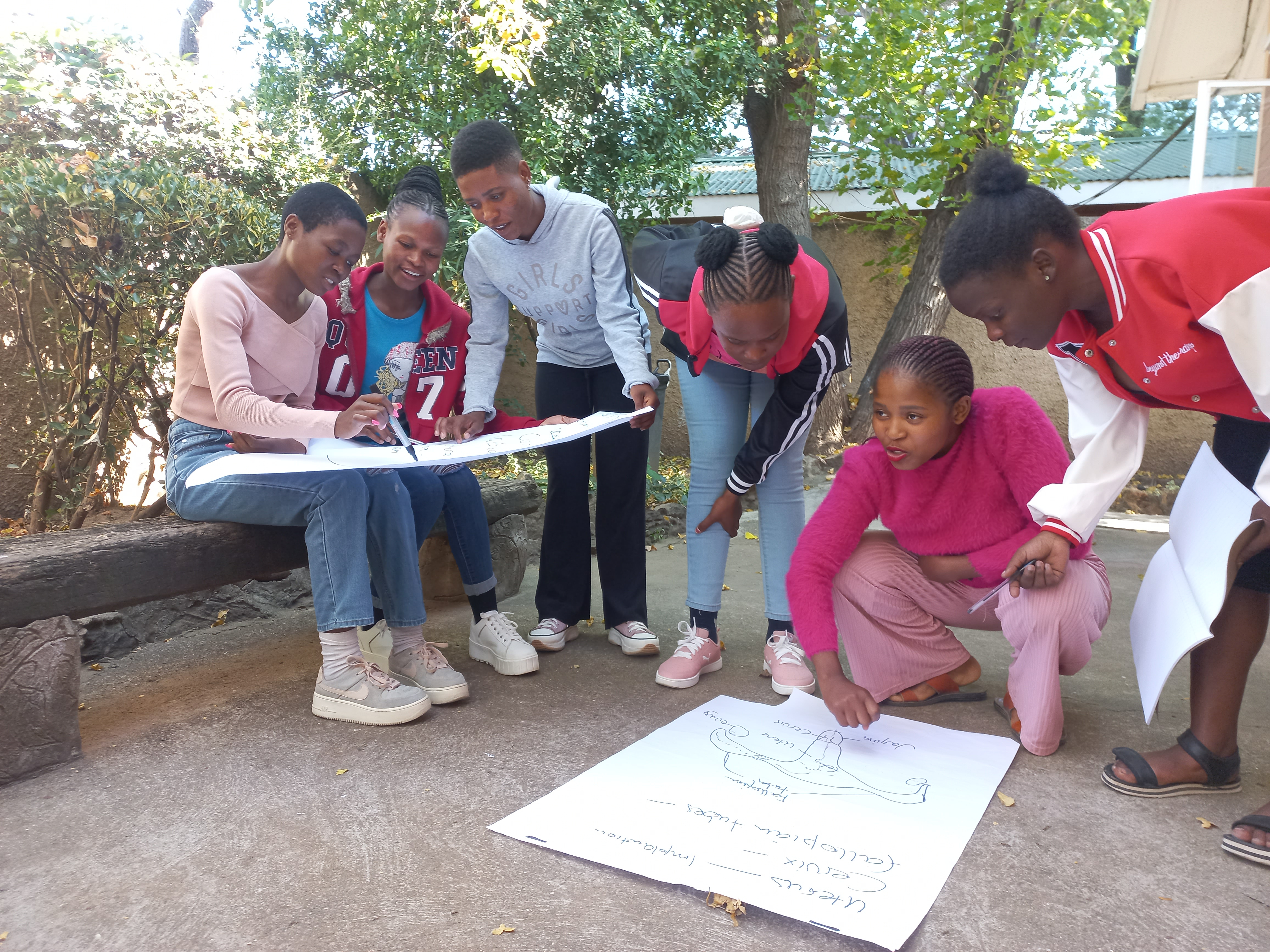World Vision Lesotho Empowers Peer Educators to Address Teenage Pregnancy and Advocate for Adolescent Health


World Vision Lesotho recently conducted a comprehensive training session for 40 peer educators to address pressing issues surrounding adolescent sexual reproductive health and rights (SRHR). Among the participants were 26 females and 14 males, representing ten health facilities in Mohale’s Hoek and four in Quthing districts.
The training aimed to tackle alarming rates of teenage pregnancy in Lesotho, which have led to adverse outcomes such as school dropouts, early child marriages, and maternal mortality. According to the Lesotho Demographic and Health Survey (2014), around 19% of women aged 15-19 had begun childbearing. Additionally, the United Nations Population Fund (UNFPA) reported that Lesotho had one of the world's highest rates of adolescent fertility, with 94 births per 1,000 girls aged 15-19 in 2017.
The training covered a range of topics, including SRHR education, prevention of teenage pregnancies, debunking myths about sexual health, and effective engagement with adolescents. Interactive workshops, role-playing, and group discussions were key methods used to ensure the peer educators could confidently share their knowledge.
Iketleng, a 21-year-old peer educator, highlighted a distressing trend: "Most of our adolescents are impregnated by married men who do not take responsibility and instead encourage them to resort to abortion pills, resulting in health complications and even death." She also noted the prevalence of myths regarding sexual health, such as the 'safe period,' which misleads many adolescents into risky behaviors.
World Vision's commitment to ending violence against children is at the heart of this initiatives. Through the Community Engagement and Sponsorship Programme (CESP), the organization aims to protect boys and girls from abuse, neglect, exploitation, and other forms of violence. Collaborating with the Ministry of Health, they leverage both the CESP Technical Programme and the Health HIV and Nutrition Programme to empower peer educators. Together, they establish Youth Clubs dedicated to educating adolescents on SRHR, aiming to reduce the risks and vulnerabilities among adolescents and youth.
Xolani, a 19-year-old peer educator, emphasized the importance of male involvement: “Menstruation, for example, should be taught to males so they can support girls during this period, as it psychologically affects them.”
Menstruation, for example, should be taught to males so they can support girls during this period, as it psychologically affects them - Xolani
The outcomes of the training are expected to be far-reaching. By equipping peer educators with comprehensive knowledge and practical strategies, World Vision aims to empower them to become advocates for change within their communities. Regular follow-ups and assessments will track changes in behavior, attitudes, and knowledge among both the peer educators and the adolescents they reach.

Reflecting on the training, Mpho, another 19-year-old peer educator, expressed optimism: "We feel this was a truly useful training as now we are going to have confidence in educating adolescents about their Sexual Reproductive Health and Rights. We are looking forward to a brighter tomorrow with this knowledge."
We feel this was a truly useful training as now we are going to have confidence in educating adolescents about their Sexual Reproductive Health and Rights. We are looking forward to a brighter tomorrow with this knowledge. - Mpho
The trained peer educators are now equipped to establish Youth Clubs dedicated to educating adolescents on SRHR. They plan to conduct house-to-house campaigns and collaborate closely with local health facilities to positively impact the mindsets of adolescents. The initiative also seeks to engage the broader community, involving parents, teachers, and community leaders to create a supportive environment.
This concerted effort underscores the commitment of World Vision Lesotho and its partners to empower communities and address critical issues affecting adolescent health and well-being. Through education, awareness, and collaboration, they aim to pave the way for a healthier and more informed generation.